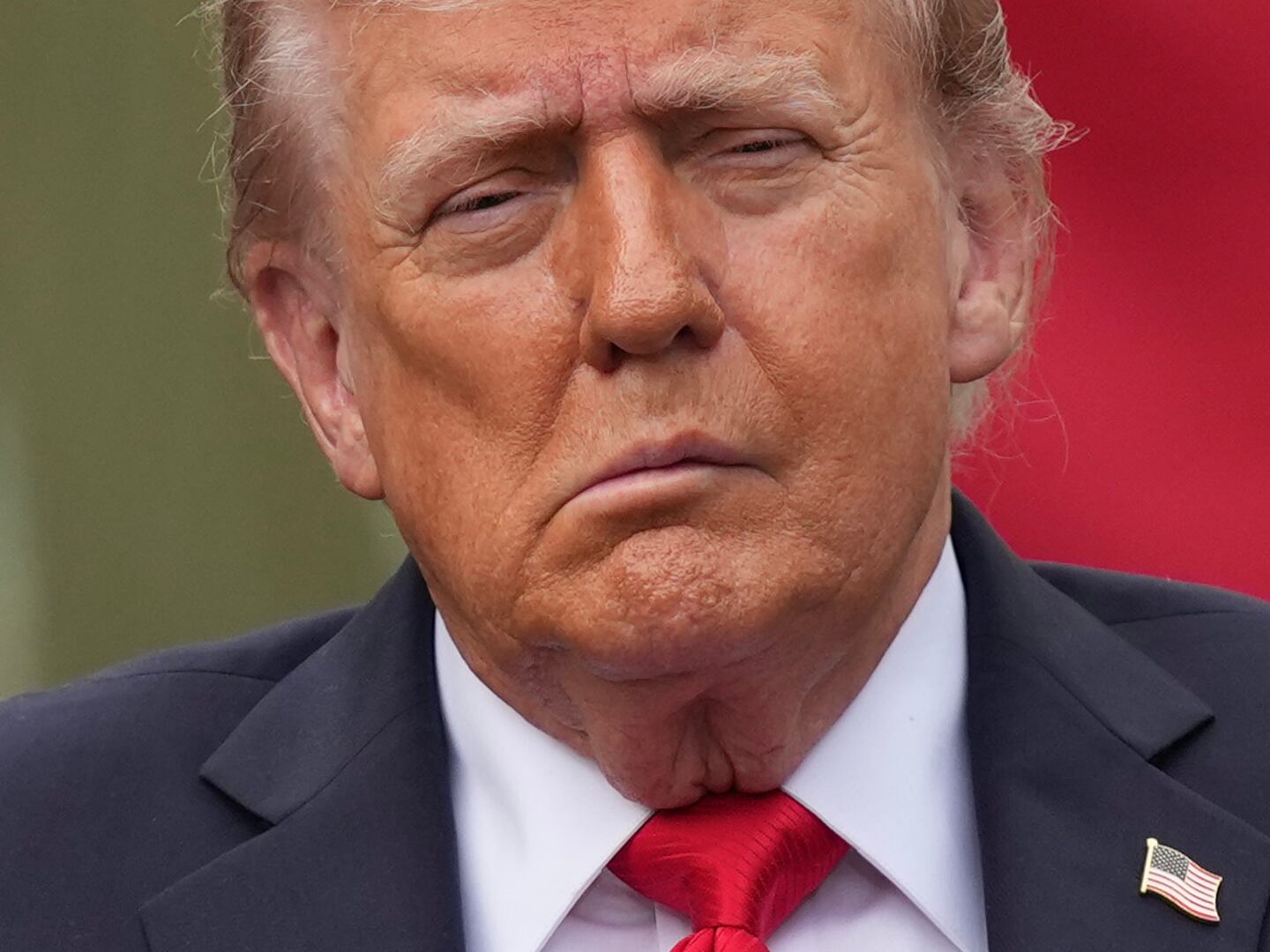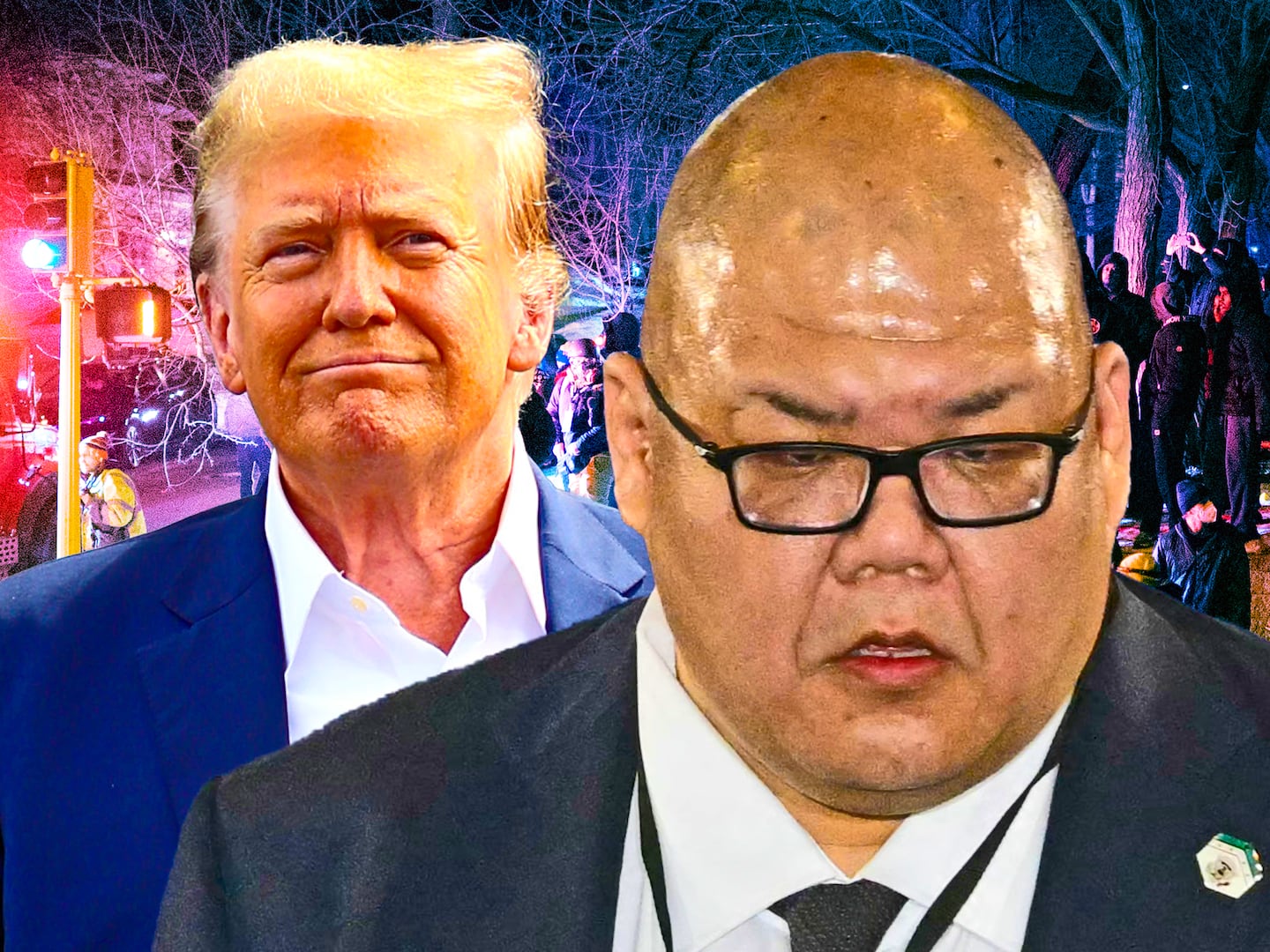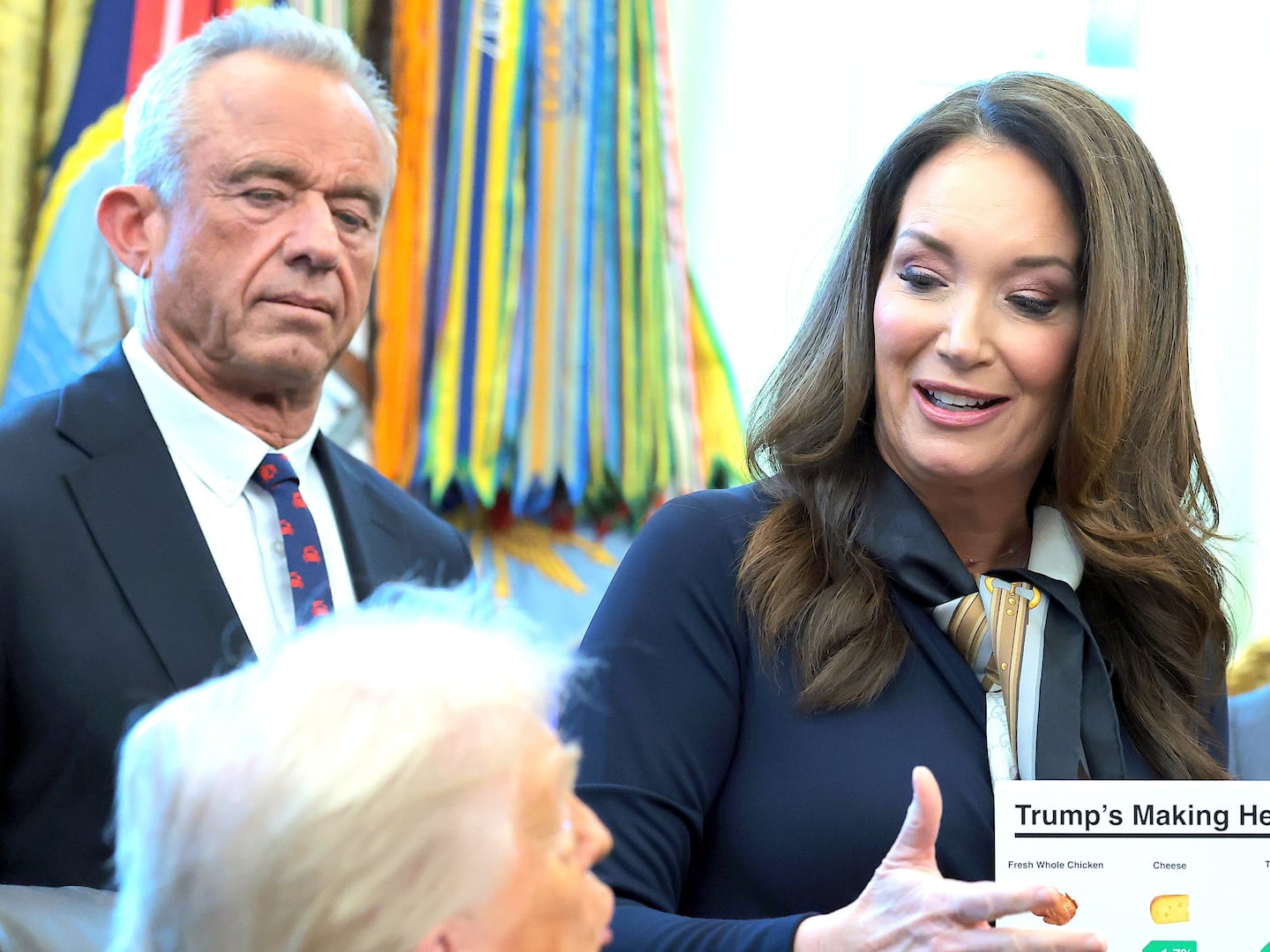Over the past three decades, scores of often very young women have accused R. Kelly of harrowing acts of sexual abuse, imprisonment, and coercion, highlighted by his alleged running of an “abusive cult” under the guise of jumpstarting their music careers.
But time and time again, Kelly seemed to bounce back, dodging a high-profile criminal case on child pornography charges, settling civil lawsuits, and gaining a fierce fan club that prosecutors say targeted those who called him out.
On Wednesday, after two years of delays spurred by countless legal hurdles and a global pandemic, the Grammy-winning singer and producer will finally face his long-awaited trial in Brooklyn federal court. And while they were hopeful for a belated measure of justice, accusers and legal experts could not help but acknowledge Robert Sylvester Kelly’s past legal triumphs only add pressure to this new proceeding.
“I don’t want to attach a lot of my emotion to this trial, but in terms of justice being served—there is not any length of a prison sentence that will turn back the clock or reduce the harm of what he did to me and others like me,” Kitti Jones, a former Dallas radio DJ who gave up her career to be with Kelly, told The Daily Beast.
“The damage is done, but now it’s time to make sure this doesn’t happen again,” the now-successful author, who has accused Kelly of trapping her in a two-year-long relationship and repeatedly abusing her, added. Kelly has previously denied Jones’ allegations.
Kelly, 54, charges a slew of federal charges in New York, including racketeering based on sexual exploitation of children, kidnapping, forced labor, and violations of the Mann Act, which barred the transport of people across state lines for sex. Prosecutors allege that for decades, the disgraced R&B singer led a criminal enterprise consisting of bodyguards, drivers, and other employees to “prey upon women and teenagers” for his own sexual gratification.
The Brooklyn charges allege abuse against at least six women and girls. Among them, prosecutors say, is at least one then-minor who contracted herpes from the singer after he knowingly exposed her to the disease.
“Kelly issued rules that many of his sexual partners were required to follow, including that the women and girls were to call him ‘Daddy’; they were not permitted to leave their rooms to eat or visit the bathroom without receiving his permission; they were required to wear baggy clothing when not accompanying Kelly to an event; and they were directed to keep their heads down and not look at other men,” prosecutors said in a 2019 announcement of the charges against the singer. “Kelly also isolated the women and girls from their friends and family, and made them dependent on him for their financial well-being.”
The “Ignition (Remix)” artist, who is also facing federal and state charges in Chicago and Minnesota, could do decades in prison if convicted in this first case. In all, Kelly faces almost three-dozen federal charges nationwide for allegedly abusing women and covering up the crimes. Some women claim they were abused as recently as 2018.
Kelly, who has been in custody since 2019, has pleaded not guilty to the charges against him in all cases—and his legal team has insisted that the women accusing him are merely disgruntled groupies. The disgraced singer’s legal team did not respond to The Daily Beast’s request for comment for this story.
Coming after the successful conviction of serial rapist Harvey Weinstein—and the since-overturned guilty verdict against violent predator Bill Cosby—the case against Kelly represents a rare chance to go after someone the legal system failed to nail once before.
This time, prosecutors have lots of new evidence—and a cultural shift that may help power their case.
“This trial is a long time coming, and there is immense pressure on prosecutors to get this one right,” former federal prosecutor Neama Rahman told The Daily Beast. “This trial will be handled similarly to the ones of Bill Cosby and Harvey Weinstein. The strategy will be to overwhelm jurors with the testimony of victims that show R. Kelly had a pattern of misbehavior.”
Kelly’s alleged pattern of physical, mental, and sexual abuse on young, mostly Black women, spans decades.
In the 1990s, Kelly had made a name for himself in the music world for a slew of popular radio hits, including “Bump N’ Grind” and “Step in the Name of Love.” Seemingly at the top of his musical game, Kelly took “Princess of R&B” Aaliyah under his wing—helping her produce her debut album, the disturbingly titled “Age Ain’t Nothing but a Number,” in May 1994.
Three months later, the 27-year-old shocked the world when he married the 15-year-old singer. As part of the federal case against him, Brooklyn prosecutors allege that Kelly bribed an Illinois government employee to obtain a fake ID for his teenage bride on Aug. 30, 1994, so that her age would be listed as 18 on their wedding certificate. In court papers, prosecutors refer to Aaliyah as “Jane Doe #1” since she was a minor at the time of the alleged offense, but her identity is clear.
“As a result, in an effort to shield himself from criminal charges related to his illegal sexual relationship with Jane Doe #1, Kelly arranged to secretly marry her to prevent her from being compelled to testify against him in the future,” Brooklyn prosecutors allege in a superseding indictment against Kelly.
The suspicious marriage, however, was quickly annulled, and Aaliyah broke off contact with Kelly, releasing two albums before she was killed in a 2001 plane crash. While family members for Aaliyah did not respond to a request for comment, the young singer’s mother has previously called claims about Kelly having sex with her then-teen daughter “lies and fabrications.”
Rahman noted that U.S. District Judge Ann Donnelly ruled in a pre-trial hearing that the jury will be allowed to hear about Kelly’s alleged sexual contact with Aaliyah when she was underage—potentially bolstering the prosecution’s case that he sexually abused minors. Prosecutors have also argued to disclose uncharged acts of sexual abuse to the jury, including one alleged December 2006 encounter with a 17-year-old boy at a McDonald’s.

“Bringing in all this other misconduct, even some that Kelly is not charged with, will only help the prosecution’s argument that he is a bad man who preyed on young women,” Rahman said. “It’s a significant win for the government, for sure.”
But a looming problem for the prosecution will be how they explain to the jury that Kelly has been already charged for sex crimes—and acquitted.
In 2002, Kelly was indicted on 21 counts of child pornography in Illinois over a video, a copy of which was anonymously sent to music journalist Jim DeRogatis, who had been reporting about Kelly in Chicago at the time.
“I had heard rumblings about a video on the streets showing R. Kelly a couple weeks before I got a copy of it. But I was working at home one day, and I got a call to look in my mailbox and inside was a VHS in a manila envelope,” DeRogatis told The Daily Beast. “It was 26 minutes and 39 seconds of crystal clear video of what was [the] most disturbing evidence you have ever seen.”
The tape, made in the late 1990s, appeared to show Kelly engaged in sex acts with, and urinating on, a teenage girl. During the 2008 trial, prosecutors argued that the video showed Kelly having sex with the young niece of R&B singer Sparkle. Fifteen witnesses, including Sparkle, testified during the trial, which garnered nation-wide attention. Neither the teenager who was allegedly in the video nor her parents testified.
After less than a day of deliberations, a jury acquitted Kelly on all counts.
For DeRogatis, the 2008 acquittal was, among other things, the sad result of jurors not hearing about other women who were allegedly abused by Kelly.
“He was so rich, he was so powerful, he was able to game the system. Cook County had never seen anything like it,” DeRogatis said. “The story that the Chicago and New York indictments lay out is that he bought justice in 2008 through bribery, intimidation, and coercion.”
Rahman agreed that not only was Kelly’s acquittal “rare,” but the swiftness of the verdict something not usually seen in criminal cases.
That precedent, he said, may “embolden” Kelly’s current team “because it gives them a good argument to the jury that their client has already been through the legal process—and been found not guilty.”
One thing working in prosecutors’ favor: the court of public opinion.
Fifteen years after DeRogatis received the videotape, the music reporter published a damning exposé at BuzzFeed detailing Kelly’s influence over young women who were held in what some of their parents called “a cult.”
The 2017 article, titled “Inside the Pied Piper of R&B’s ‘Cult’,” centered on interviews with three sets of parents, painting a harrowing picture of how Kelly allegedly confined women in his Atlanta and Chicago residences and subjected them to physical, verbal, and sexual abuse. Almost instantly, a #MuteRKellycampaign erupted online, encouraging people to participate in protests to boycott the singer’s music.
“It was as if she was brainwashed. [She] looked like a prisoner—it was horrible,” one mother said in the article. “I hugged her and hugged her. But she just kept saying she’s in love and [Kelly] is the one who cares for her. I don’t know what to do. I hope that if I get her back, I can get her treatment for victims of cults. They can reprogram her. But I wish I could have stopped it from happening.”
At the time, however, police told BuzzFeed that because the women were technically over the age of consent and insisted they were with Kelly voluntarily, nothing could be done criminally.
About three months after the article went viral, the #MeToo movement shook the nation, inspiring hundreds of women to come forward with their accounts of sexual harassment or assault at the hands of powerful men in politics, media, and the entertainment industry.
Among them were Kelly accusers, like Jones—who told her extraordinary account of life in Kelly’s “sex cult” to Rolling Stone.
“The timing could not have been better,” she reminisced to The Daily Beast. “People were taking me—taking women like me—seriously and saying, ‘Wait a minute, let’s dig this up again.’”
Jones first met Kelly in June 2011, when her Dallas radio station organized an after-party for one of his concerts. Two weeks after moving into his Chicago home, Jones said, Kelly sought to control everything about her life—from her choice of clothes to when she was allowed to use the bathroom.
The former DJ alleges she was beaten, starved, and forced to have sex with other women while living at Kelly’s Chicago compound during their two-year relationship. Jones said she eventually left in September 2013, using the pretext of a visit by her son to flee.
“What happened was traumatic, it forever changed who I am as a person,” Jones told The Daily Beast.
Part of Jones’ process toward healing, she said, was her involvement in the 2019 Lifetime docuseries Surviving R. Kelly. The series, which included heartbreaking stories from several women, again sparked outrage against the disgraced singer.
“He told me to perform sexual acts while his friends were in the backseat. It was like he owned me,” Lizzette Martinez, another Kelly accuser, said in the 2019 series. “He stole my life from me.”
Martinez, and her attorney Gloria Allred, declined to comment on Kelly’s upcoming trial, and it was unclear if she would factor into the New York or Chicago cases.
Despite all the bombshell articles, documentaries, and viral protests against Kelly, DeRogatis believes the Brooklyn trial “will reveal new information that is going to turn my stomach.”
“It’s the pattern of behavior—and that’s what we said decades ago,” the reporter said. “This is not isolated. This is a pattern, and this trial will seek to prove that Kelly was at the helm of a criminal enterprise. He was the godfather.”

Part of the prosecution’s plan to prove that, according to court documents, is to rely on the testimony of women the feds say were manipulated, lured, and assaulted by Kelly or his inner circle over the past three decades.
But Rahman, the former federal prosecutor, added that Brooklyn prosecutors must also have information about Kelly’s entourage to prove the disgraced singer was at the helm of a criminal enterprise. To date, three of Kelly’s self-described entourage members have already been charged for trying to intimidate, bribe, and coerce the singer’s accusers from speaking out—all of their conduct coming after his 2019 arrest.
Two have since pleaded guilty to targeting Kelly accusers, and the third is in the middle of plea negotiations.
“Prosecutors would not have brought forth charges alleging that Kelly was at the helm of a criminal enterprise if they did not have some inside knowledge, or possibly even cooperating witnesses, that provided the evidence to that effect,” Rahman added. “The defense should be anticipating that.”
Despite uncertainty about the outcome, for Jones, the idea of Kelly being forced to confront those he allegedly hurt in court offered the prospect of healing.
“Just to know that he has to sit there and be held accountable for it—that’s a big thing for me,” Jones said. “For him to sit there and listen to each person. I think it’s time that he faces all of those people. One at a time.”







